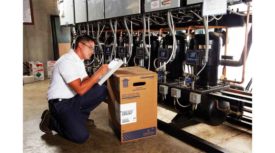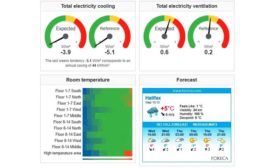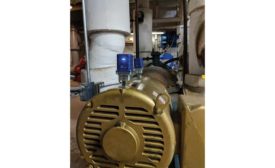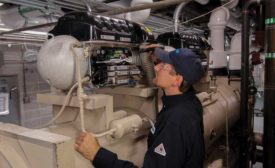Home » Artificial Intelligence (AI)
Articles Tagged with ''Artificial Intelligence (AI)''
AI Makes Inroads Into Commercial Refrigeration
Artificial intelligence promises to improve energy savings, equipment longevity, and more
Read More
System Improves HVAC Performance Using Automated Intelligence, Data
Firm plans to bring Ecopilot to U.S.
Read More
AI Accounting Reduces HVAC Contractor’s Invoice Processing Time by 60 Percent
Automated accounts payable system means faster monthly closing, more time for business decisions
Read More
The Promise Of Artificial Intelligence In Chillers And Rooftops
Technology can predict problems, as well as improve comfort and efficiency
Read More
Modernize and Spectrum Collaborate for AI-Optimization of Home Improvement Leads
Companies will be sharing aggregate performance data
September 20, 2019
Five Steps to Success When Integrating Building Technology
New building automation requires learning the language and planning ahead
Read More
The Impact of Artificial Intelligence on HVACR
Smart systems may detect problems faster, improve comfort and savings
Read More
Copyright ©2025. All Rights Reserved BNP Media.
Design, CMS, Hosting & Web Development :: ePublishing













